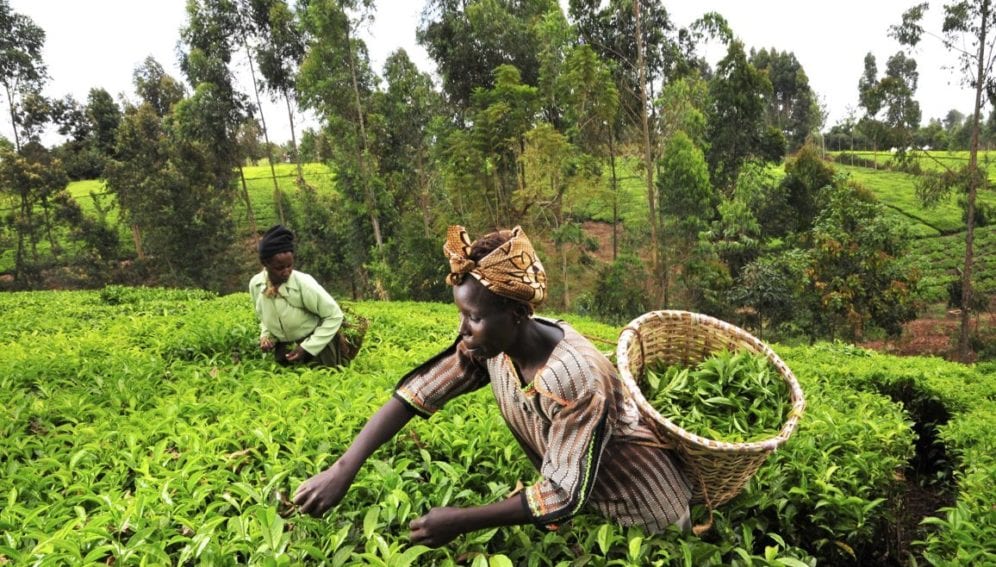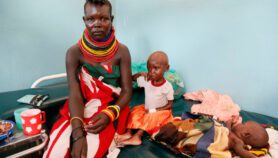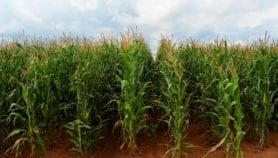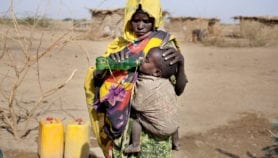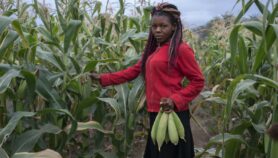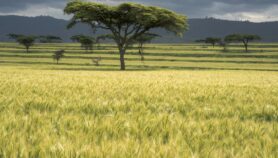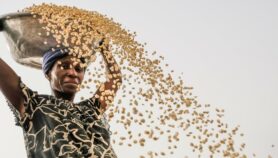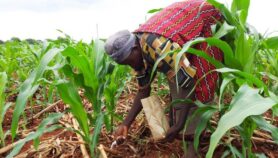By: Alberto Leny
Send to a friend
The details you provide on this page will not be used to send unsolicited email, and will not be sold to a 3rd party. See privacy policy.
[NAIVASHA, KENYA] Food security researchers from nine African countries will receive 60 million Canadian dollars (about US$56.1 million) from the Canadian International Food Security Research Fund (CIFRSF) to scale up their projects.
The researchers gathered in the Kenyan town of Naivasha last week (23-27 June) for the Research to Feed Africa Symposium to review ten research projects they have been conducting since 2011, with a similar US$56.1 million funding from CIFRSF.
The beneficiary countries are Benin, Burkina Faso, Ethiopia, Kenya, Mali, Niger, Nigeria, South Africa and Tanzania, and the funding will start from September this year, according to Simon Carter, the Canadian International Development Research Centre (IDRC) director for Sub-Saharan Africa.
“We do not want ivory tower institutions with no impact on the ground to benefit poor rural farmers.”
Ephraim Mukisira, Kenya Agricultural Research Institute (KARI)
“All the ten grantees were invited to submit scaling up research proposals, which have gone through a rigorous competitive process,” Carter tells SciDev.Net.
He says submissions had ambitious plans to take their proposals to scale and that at least two projects will be selected for funding this September, pending approval by the CIFRSF governance committee.
The committee will recommend seven projects for a second round of review to give grantees an opportunity to better focus on their proposals and refine their research scale-up for implementation beginning 1 November, Carter adds.
The Naivasha symposium was organised by the Kenya Agricultural Research Institute (KARI), with a focus on women farmers to address pressing issues relevant to smallholders in Africa. KARI is collaborating with Canadian partners in two research teams.
The issues discussed included research empowering women to tackle cattle lung disease, enriching soils and seeds to improve nutrition and new technologies for growing indigenous vegetable species.
Ephraim Mukisira, KARI director, tells SciDev.Net: “Amid the challenges of climate change, poverty and unemployment, we must believe in science and technology innovation, and collaboration, because it is possible for African countries to generate enough food”.
Mukisira says the ten projects supported mainly by IDRC had yielded valuable information and knowledge which would provide useful lessons for African countries.
“We do not want ivory tower institutions with no impact on the ground to benefit poor rural farmers. Research institutions and universities should not be confined to the academia,” he adds.
According to Timothy Simalenga, executive director of the Centre for Coordination of Agricultural Research and Development in Southern Africa (CCARDESA), African farmers seriously need greater support and knowledge to increase productivity.
“We need vibrancy to bring change through innovative and transformational research and technology … for farmer empowerment, market access and knowledge management,” says Simalenga.
This article has been produced by SciDev.Net's Sub-Saharan Africa desk.


